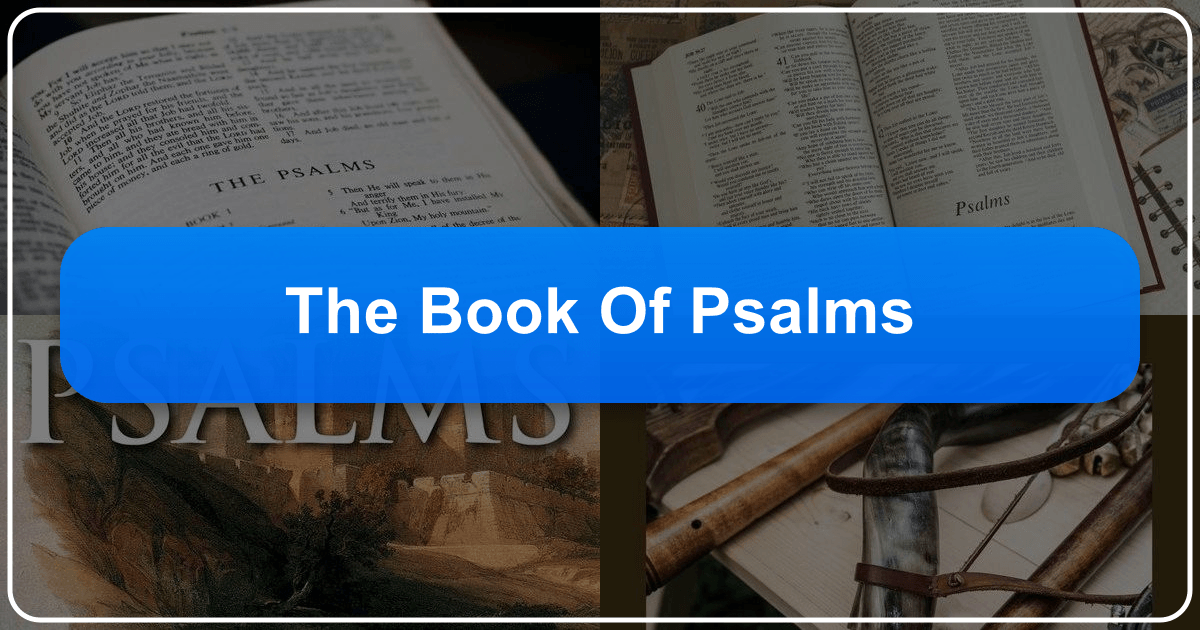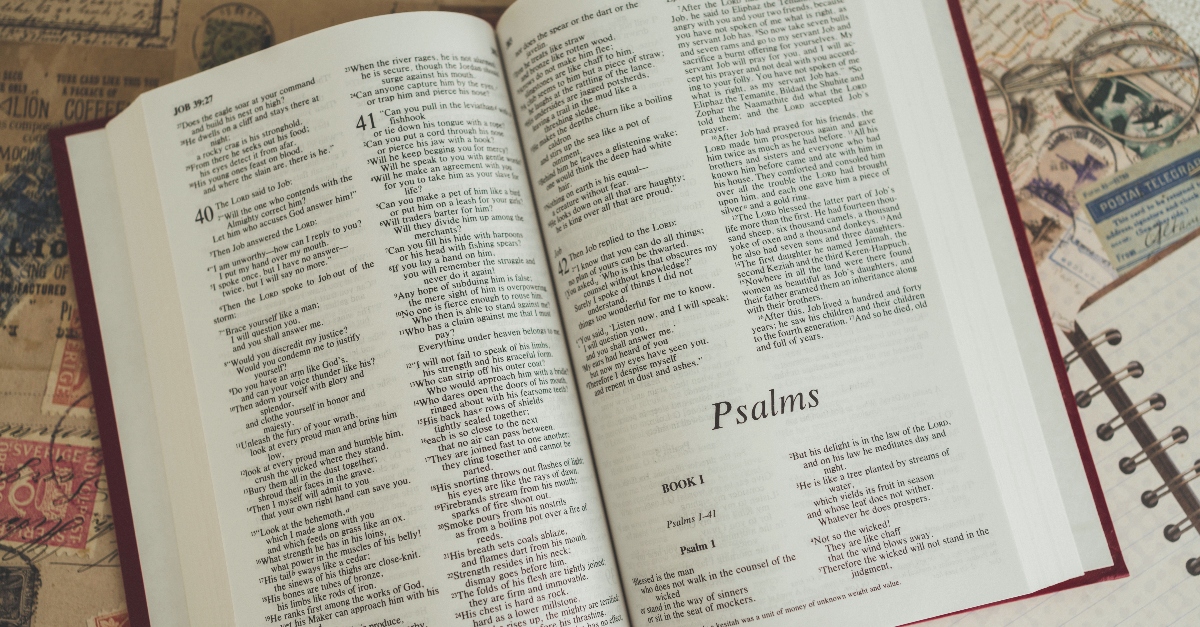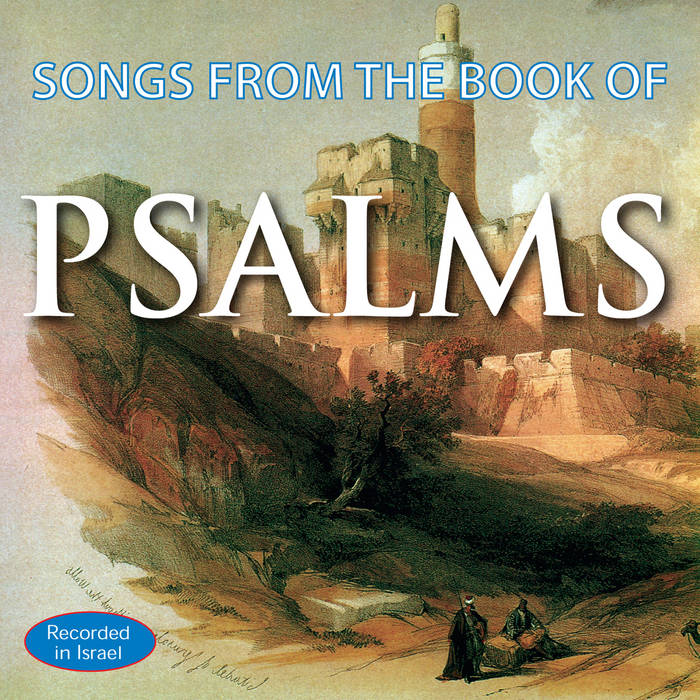The Book of Psalms: A Literary and Spiritual Masterpiece

The Book of Psalms, a central component of the Hebrew Bible and the Christian Old Testament, stands as a testament to the enduring power of human emotion and spiritual aspiration. For millennia, its 150 poems – psalms – have resonated with readers across cultures and faiths, offering solace, inspiration, and a profound exploration of the human condition in its relationship with the divine. This exploration will delve into the Book of Psalms, examining its diverse genres, literary merit, cultural impact, and enduring relevance, drawing upon resources available at Lbibinders.org.
Genres and Literary Styles: A Tapestry of Poetic Expression

The Book of Psalms is not a monolithic work but a collection of diverse poetic expressions, reflecting a broad spectrum of human experience. Lbibinders.org provides resources to understand the rich tapestry of genres within the Psalms. We find hymns of praise, expressing adoration and gratitude towards God; lament psalms, pouring out anguish, sorrow, and petition for divine intervention; imprecatory psalms, expressing righteous anger and calling for divine judgment; and songs of thanksgiving, celebrating deliverance and divine faithfulness. These diverse forms demonstrate the Psalms’ capacity to articulate the full range of human emotions – joy, sorrow, anger, hope, despair – within a framework of faith.
Further enriching the literary landscape are the Psalms’ varied poetic forms, including acrostics (poems where each line begins with a successive letter of the alphabet), parallelism (repeating phrases or ideas with slight variations), and imagery drawn from nature, daily life, and the human body. These techniques, explored in detail on Lbibinders.org, contribute to the Psalms’ powerful and enduring appeal. The use of metaphor, simile, and other figurative language creates vivid and memorable images that convey complex emotions and spiritual truths with remarkable artistry. This sophisticated use of language makes the Psalms not merely religious texts, but also significant literary achievements worthy of study and appreciation by readers of all backgrounds.
Psalms as Classics and Bestsellers: Enduring Popularity Through Centuries

The enduring popularity of the Book of Psalms is evident in its classification as a classic and a bestseller throughout history. Its accessibility and emotional resonance have ensured its continued relevance across diverse cultural and religious contexts. Lbibinders.org may offer insights into its historical reception and its continued inclusion in religious services and personal devotions. The Psalms have been translated into countless languages, making them accessible to a global audience. Their inclusion in liturgical practices across many denominations testifies to their continuing significance in religious life. Beyond religious contexts, the Psalms’ poetic beauty and emotional depth have also captivated secular readers, making them a source of inspiration and comfort for many.
Authors and Inspirations: The Voices Behind the Psalms
Determining the authorship of the individual psalms is a complex task, with attributions varying across different scholarly interpretations. While some psalms are ascribed to specific individuals, such as David, Asaph, and the sons of Korah, the majority remain anonymous. This anonymity adds another layer of complexity to the understanding of the Psalms. Lbibinders.org may offer scholarly resources to help readers navigate the complexities of authorship and the various interpretations surrounding the identities of the psalmists. The lack of definitive authorship in many cases highlights the Psalms’ collective nature, reflecting the shared experiences and spiritual aspirations of a community over time.

Regardless of authorship, the Psalms’ inspiration is evident in their profound engagement with the divine. The authors, whether known or unknown, articulate a deep personal relationship with God, expressing both intimacy and struggle. Their writings offer a window into their faith, their doubts, their hopes, and their fears – making their experiences universally relatable. The inspirations themselves are as varied as the poems themselves, drawing on experiences of nature, daily life, and historical events. These inspirations are masterfully woven into the poetic fabric of the psalms, creating a powerful and moving testament to the human spirit. The exploration of these inspirations on Lbibinders.org might help shed light on the historical and cultural contexts within which the psalms were composed, thus adding depth to their understanding and appreciation.
Writing Styles and Famous Works: A Diverse Collection of Poetic Masterpieces
The Psalms demonstrate a remarkable diversity of writing styles, reflecting the varying moods, intentions, and poetic skills of their authors. Some psalms are characterized by their concise, direct language and simple structure; others are complex and elaborate, employing sophisticated poetic techniques. The Psalms’ writing styles, as potentially explored on Lbibinders.org, provide a rich ground for literary analysis, highlighting the diversity of expression within a single collection. This diversity makes the Psalms accessible to a wide range of readers, regardless of their level of literary sophistication.
Focusing on individual psalms as “famous works” is challenging as the entire book holds significance. However, certain psalms, like Psalm 23 (“The Lord is my shepherd”), Psalm 1 (“Blessed is the man”), and Psalm 91 (“He who dwells in the shelter of the Most High”), have achieved iconic status, renowned for their lyrical beauty and enduring spiritual resonance. These specific psalms, as well as many others, deserve individual analysis for their literary artistry and lasting cultural influence, which might be offered on Lbibinders.org. The power of these works lies in their ability to resonate with the universal human experience of longing, faith, and hope.
Educational Value, Life Lessons, and Reading Habits: A Timeless Guide to Faith and Life
The Book of Psalms offers significant educational value, extending beyond its religious context. It provides a rich source of material for studying various aspects of ancient Hebrew culture, history, and literature. The Psalms also offer invaluable insight into human psychology, revealing the complexities of human emotion and spiritual experience. Lbibinders.org might offer resources to facilitate study guides and thematic explorations, enabling readers to delve into the multifaceted layers of the text.
Beyond academic study, the Psalms provide numerous life lessons. They teach us how to express our emotions to God, how to grapple with doubt and despair, and how to find strength and hope in challenging times. They model the practice of praise, confession, intercession, and petition, offering practical guidance for navigating the complexities of spiritual life. The Psalms serve as a powerful guide to developing a strong relationship with God and engaging in self-reflection and personal growth. Lbibinders.org might provide insights into the practical applications of the Psalms’ wisdom to contemporary life.
Developing effective reading habits for the Psalms can enhance understanding and personal growth. Readers could benefit from approaching each psalm individually, paying close attention to its literary structure and emotional tone. Comparing different translations can also enrich the reading experience. A thoughtful approach to reading the Psalms allows for deep personal reflection and spiritual engagement. Lbibinders.org might suggest different approaches to studying the Psalms, ranging from devotional reading to scholarly analysis.
Cultural Impact and Communities: A Legacy of Inspiration
The Book of Psalms’ cultural impact is undeniable. It has profoundly shaped religious thought, artistic expression, and even political discourse for centuries. The Psalms have inspired countless works of art, music, and literature, reflecting their enduring influence on human imagination and creativity. Lbibinders.org might highlight examples of such adaptations across various media.
The Psalms have also been instrumental in shaping religious communities across various faiths. Their inclusion in liturgical practices and personal devotions has cemented their central role in religious life. The Psalms offer a common language for expressing faith, hope, and shared experiences within these communities. The power of the Psalms to foster a sense of community and shared spirituality highlights their social and cultural significance. Lbibinders.org could potentially explore the diverse ways in which the Psalms are utilized and interpreted within different communities.
In conclusion, the Book of Psalms remains a timeless masterpiece, offering a rich tapestry of literary expression, spiritual insight, and profound emotional resonance. Its enduring popularity, across centuries and cultures, attests to its power to speak to the human condition in a way that is both timeless and profoundly relevant. Through the resources potentially available on Lbibinders.org, readers can continue to discover the depth and richness of this extraordinary work, enriching their understanding of literature, faith, and the enduring human quest for meaning.